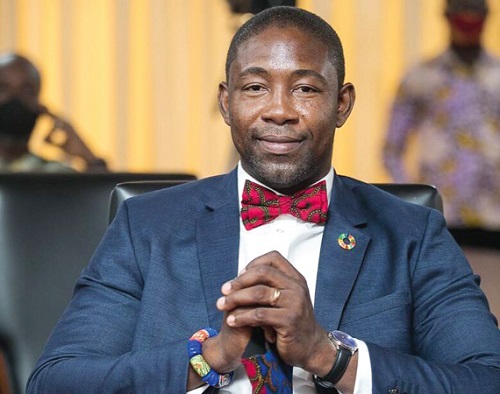
Ghana’s NHIS best in Africa — World Bank
The World Bank has commended Ghana’s National Health Insurance Scheme (NHIS) for being one of the best in Africa, especially with regard to population coverage.
Ghana, with its 55 per cent coverage in 2022, came next after Rwanda, 79 per cent, whose coverage is compulsory.
Senegal has 19 per cent, Kenya 16 per cent and Nigeria three per cent.
A Health Economist with the World Bank, Enoch Oti Agyekum, stated this when he addressed the opening of a training in expected claims generation and submission for the Tier-Three providers in Accra yesterday.
He said the NHIS was performing very well and “if we look across the region, the NHIS comes next to Rwanda, as the best performing scheme in terms of population coverage.”
“But I will even say that the NHIS is the best because the context of Rwanda is different from that of Ghana and so in terms of population coverage, if you want to clap you can do it better for Ghana,” he added.
Mr Agyekum said what was now required was how to make the reach effective by ensuring that when people went to the facilities, they got the services they needed.
They should also not be asked to pay for the services covered under the NHIS.
Blame
Mr Agyekum explained that in several meetings, where NHIS had been blamed for not paying on time, some of the reasons had been that the providers also delayed in submitting their claims.
The service providers often did not submit them in a quality manner that would lead to efficient delivery, he added.
The Health Economist said the World Bank recognised the numerous initiatives the NHIS had initiated, including the use of information technology (IT) to facilitate claims generation and processing.
Mr Agyekum, however, pointed out that facilities such as community-based health planning services (CHPS), health centres and maternity homes were the ones that might not benefit very much due to poor network and the lack of other amenities.
The World Bank Health Economist indicated that the training was, therefore, a proactive measure to help the participants to generate claims manually as was expected.
The Deputy Executive Director of the Christian Health Association of Ghana (CHAG), Dr James Duah, touching on claims payment by the NHIS, said compared to previous years, the recent payment had been more forward looking.
“If you do data analytics, you need three points to establish a point and so far we have had those three points; the trend looks good and we are hopeful that this training would also contribute to enhance the processes and early payment,” he added.
Dr Duah expressed the hope that the training would lead to early submission of claims.
He said in 2018, CHAG commenced the digitalisation of processes with three member facilities, but currently, 331 CHAG facilities were submitting claims electronically.
The deputy executive director of CHAG commended the World Bank and the National Health Insurance Authority (NHIA) for the collaboration in training members for the facilitation in the submission of claims which would lead to satisfaction on both sides.
The President of the Society of Private Medical and Dental Practitioners (SPMDP) Ghana, Dr Andre Kwasi-Kumah, said the society also appreciated the regular and timeous payments the NHIA had been making recently and expressed the hope that it would continue.
